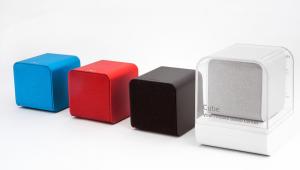Must be for pokemon fans. Can't say it's for me, of course. But I found a lot of interesting information on Depositphotos. And recommendations for the game.
Why You Should Care About Pokemon Go

So, once you’ve found your desired creature, the object is to catch them, and “train” them. To do this, you need tools and gyms. These are also found at in the real world, attached to points of local interest. The “Pokestops” (item drop locations) and gyms can be found at statues, murals, ballparks, and other locations around town. Personally, I found this part of the game incredibly charming. I found myself learning all about areas that I thought I’d thoroughly explored, often with a humorous twist. For example, the picture above is what the game had to say about one local playground.
Clever, right? And I’m not the only one who found exploring the neighborhood fun. Some people traveling on vacation are finding novel detours that they’d otherwise have missed by using Pokemon Go. Additionally, there have been rumors of special gameplay and rare item drops that will occur only at real-world events, like a concert or convention. If you smell possibly corporate tie-ins, you’re probably on the right track. While some console-based games have already integrated the ability to obtain rare-items or special characters via real-world events, none have applied gameplay to the actual physical location of the player. Blizzcon attendees, for example, could enter a code that they received with their ticket purchase to the convention and enter it into their home system to get special items. But Pokemon Go demonstrates that game designers could drive physical attendance to concerts, store events, etc. This may mark the end of the house-bound gamer stereotype. Personal Data as GameplaySharing your personal information (location, steps taken, heart rate) is nothing new in the smartphone era. Fans of fitness apps and smart watches have used personal data mining to track their performance for years. Fitness games like Zombies Run and The Walk use the GPS in your phone to track speed and distance, which helps forward the story and your character’s ranking in the game.
Pokemon Go takes this a step further and creates a multiplayer experience where the players have to physically be in proximity of one another to accomplish certain tasks. Battling at a “gym,” located at a fountain near a local mall, for example, I saw several people standing near one another, training or catching creatures. The social aspect isn’t be be understated. Bars and restaurants located near Pokestops or Gyms are offering discounts on actual food and drinks in exchange for a Pokemon-related social media shoutout. Whether you give a crap about snagging a Vulpix or no, a buck off a lager is nothing to sneeze at. Expect to see more gameplay translate into tangible product and vice versa via loyalty points in the near future. Think frequent shopper card but way more invasive.Pokemon Go came under fire early in the release for the extreme privacy loophole created when signing up using your Google account. Niantic has since addressed the issue, but still have access to a lot of vital information. The app can see your Google user ID and email address, as well as location via GPS. For those concerned with personal privacy, and who use a Google account attached to their real name, this could feel like a Snowden-fueled nightmare. Truly, it is something to consider. Those frequent shopper discounts at the grocery store aren’t for free. You’re selling your shopping habits, your personal statistics, your most visited stores, etc. in exchange for $.30 off of Cocoa Krispies.
As gaming and entertainment forge further into the VR realm, we need to consider what data about ourselves we’re willing to sell. Your weight? Blood pressure readings? Heart rate? As large entertainment companies begin to spread into more avenues, the small bits of data that we release here and there can begin to collect into a larger whole. Apple, for example, should I enable all available features, has access to my music, reading, photos, heart rate (via smartwatch), location (via apps), email, name, credit card info, friend’s names (via social media aspects in iTunes, as well as my address book in the cloud)... you get the idea.Now pair all of this currently available info to VR devices that we wear every day as part of an enhanced reality, like this, as imagined by artist Keiichi Matsuda. It’s not far off. The devices are there, the concepts are there, and now, as Pokemon Go is showing us, the infrastructure is there.
The question is, do you want to play?
- Log in or register to post comments
































































